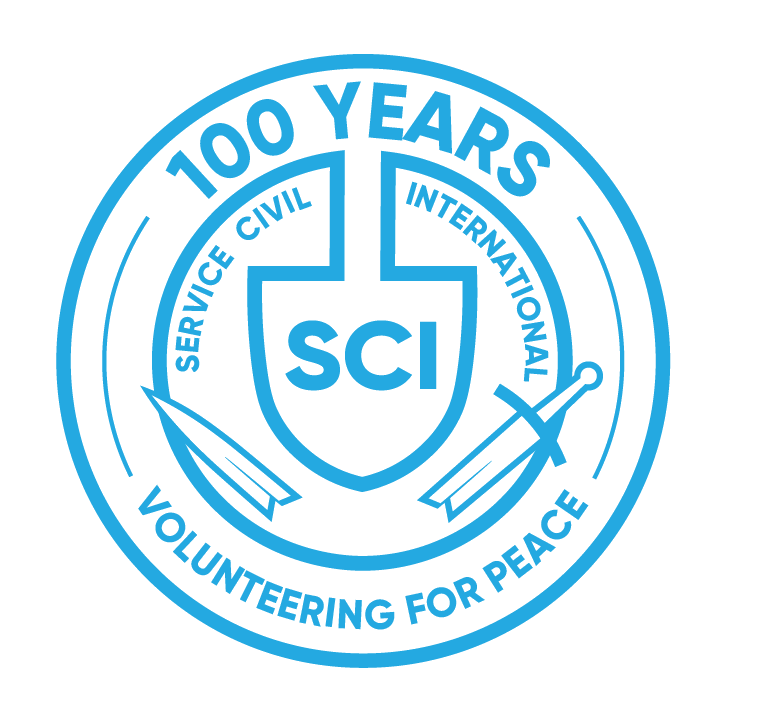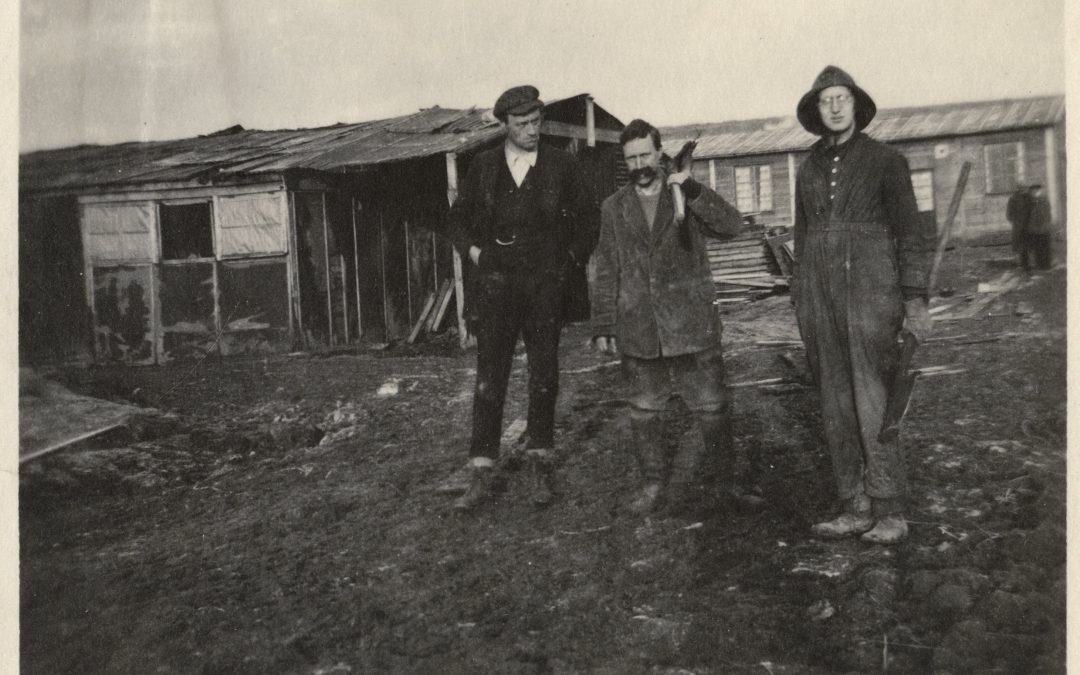Hubert Parris from Britain and Pierre Ceresole from Switzerland had arrived to Esnes, a war-destroyed village near Verdun in North-Eastern France, in November 1920, in order to start the reconstruction of houses with an international group of volunteers. This “first workcamp” is the event we have just celebrated as the starting point for Service Civil International (SCI). It may be a bit less known that the reconstruction project in Esnes lasted several months.
Around Christmas 1920, the group reported the arrival of the first volunteer from a former “enemy” country (“enemy” from the French national point of view) – Adalbert Szilard, a student of architecture from Hungary. The fourth regular report, signed by Hubert Parris and directed to the “Movement towards a Christian International”, dated January 20, 1921, lists the participants present in Esnes at that moment: Maria van der Linden from the Netherlands who by the way was the only female participant, Pierre Ceresole and his brother Ernest from Switzerland, the aforementioned Adalbert Szilard, Valentin Hopper, Karl Keinath and Helmut Starke, all of them skilled craftsmen from Germany, and Hubert Parris himself. The report mentions a fourth German participant, Ernst Horn, who would only be able to arrive at the beginning of February. Besides good progress with the construction of a fourth big wooden house, the report also speaks of problems which may put in question the future work plans: The French government had just cut the budget for reconstruction in war-affected areas, thus endangering the construction of more buildings. According to Hubert Parris, the group started to consider looking for alternative work projects in the area.
In the course of the winter, whilst the project was still going on, already the first reports on this innovative project have been published. The Swiss teacher and activist Hélène Monastier who later became the first international president of SCI wrote an article in the French-language Swiss magazine “Voies nouvelles”, published by the “Religious Socialists”: The text had the title “The Bilthoven Pioneers at work” – referring to the conferences in Bilthoven (the Netherlands) in 1919 and 1920 where the idea of international “workcamps” for reconciliation and reconstruction had been developed. And on February 6, the mainstream newspaper “Journal de Genève” printed a piece by Paul Seippel, a liberal pacifist Swiss intellectual. Seippel puts the project in Esnes in the context of the practice of the Quakers –Christian dissenters who refuse military service and execute practical social work. Both testimonials remind us, strangely enough, of the Christian roots of what today is SCI – an international movement without any religious or political affiliation.
Heinz Gabathuler
Philipp Rodriguez has compiled an extensive collection of original documents in French, German and English on the Esnes project which can be downloaded in pdf format https://archives.sci.ngo/news/106/126/The-first-workcamp-of-Service-Civil-International/d,download_detail.html

